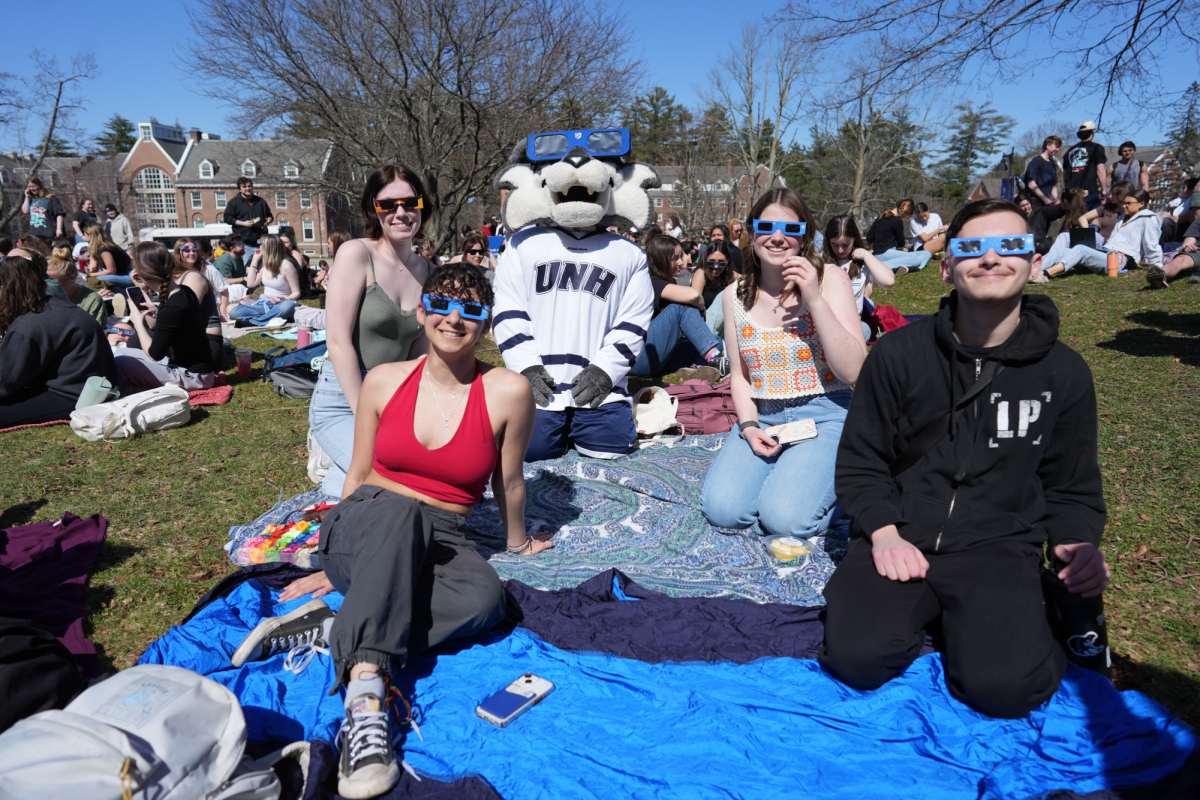As a firefighter, being calm is a necessity when dealing with the intensive and unpredictable scenarios that come with the job. I got to experience first hand for 14 hours what that was like during Homecoming at UNH on Saturday, Oct. 1.
“Slow is smooth and smooth is fast,” firefighter Matthew Hunt said as we circled around campus in Medic 1 after responding to a call.
A couple of hours before that, I was at the front door of the department. I took out my phone and called the shift captain Jason Best to have someone let me in, hung up and then took a few steps away from the door to digest my unpredictable night.

Eric Vierkant, a fellow student and member of the fire squad let me in; we shook hands in the slim hallway and then marched up to Best’s office.
“Take a seat,” Best ordered, pointing to a chair adjacent from him. He looked tired, which he undoubtedly was. Grinding away for 24 hours plus does that to people.
I asked how the day was as he stared at the data on the computer screen.
“[Expletive] show,” he said, not breaking focus from the data. I began to swivel my chair side-to-side looking at the medical books, devices and other things I don’t run into on my usual accord. I swung my focus to Best with his focus already on me.
“There have been 16 calls on my end since 8 a.m,” he said, rubbing his hands on his face, massaging energy back into himself. A faint female voice sparked through the intercom about a helicopter medevac.
Best brought me out and into the kitchen where he acquainted me with Ken Lundberg, who was cooking a pork roast for the communal dinner with his visiting wife and young daughter. I shook his hand and then Scott McGrath’s, the firefighter who I’d be tailing for the rest of the shift. I threw my pack down in the corner and followed McGrath down to the garage to get a briefing of what I’d be doing for the night. Of course, while I was getting my observer shirt, helmet and reflective vest, my first call went off.
I was in the station for no more than 15 minutes when I found myself at my first medical scene. It was on Main Street. We rolled out of the station and pulled Medic 1 up behind the ambulance, which was already on location. I sprawled out of the vehicle, tossed my reflective vest on and then strolled up the road.
Assistant Chief Dave Emanuel told me to come take a look at the victim, so I poked through the small crowd of uniformed personnel, where I saw facial laceration on a victim being carted away to the hospital.
When I came back from my first medical call there was dinner already set on the table and about an hour of TV and lulled time accompanied it.
“We call this hurry up and wait,” McGrath said as he sat on the couch and checked his phone from time-to-time as he watched a movie.
Waiting for the unpredictable events is what summed up the rest of the evening and early morning. What Hunt stated earlier about slow being smooth and smooth being fast is spot on. Situations are likely to change at a moment’s notice, whether it is an intoxicated college student, car accident or broken elevator. For example, an intoxicated individual might become violent, and each firefighter has to be capable of shifting their attention to that unexpected change.
None of what I saw the other night was majestic in the least bit. There was plenty of drunk kids, puke and blood, but the way the firefighters responded to the situations, they were posed with was a copacetic ensemble of civic duty.
Being calm during these high stress situations would be nearly impossible without some sort of release back at the station, and if you were there with me you would have seen professionalism turn into shenanigans.
Each time we’d roll into the garage the passenger-seated firefighter would say through the coms “Medic 1 Strafford” to the dispatcher with all seriousness. The driver, who was normally McGrath, would then back the vehicle in, get out, put his gear back in its designated spot, walk up the stairs from the vehicle into the living room and then crack a needed joke or pun.
I could hear these noises, jokes and stories all night long from the living room of the fire station and through the communications of the headsets inside the engine on the way to scenes.
All these shenanigans lessen the stressfulness of the macabre situations prior. There’s nothing easy about seeing the things that firefighters see. As for myself, after just viewing one simple bloodied victim with a laceration to the face, I was in need of some lightening humor as well.
Follow Us on Twitter
The Durham fire station on Homecoming
October 3, 2016
Leave a Comment
More to Discover
























